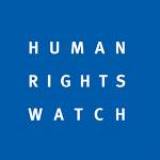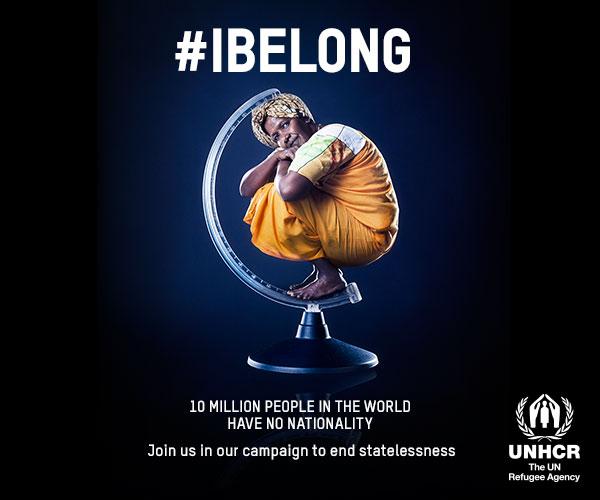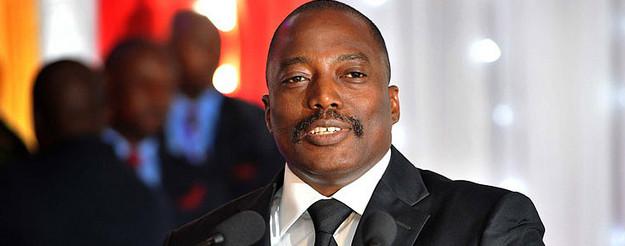It is time for Cí´te d’Ivoire and the ICC to end the nation’s cycle of revenge and retribution: Amnesty Simone Gbagbo and indict Blaise Compaoré – By Herman J. Cohen

 Since the end of the civil war in Cí´te d’Ivoire in May 2011, efforts to achieve national reconciliation have clearly been unsuccessful. The many supporters of the former President Laurent Gbagbo, who is now standing trial before the International Criminal Court, are not seeing equal justice. None of the “˜New Forces’ militia that fought against Gbagbo has been charged with crimes despite ample evidence of mass atrocities in areas they controlled, while the “˜Young Patriots’ militia that supported Gbagbo are being tried for war crimes by the thousands.
Since the end of the civil war in Cí´te d’Ivoire in May 2011, efforts to achieve national reconciliation have clearly been unsuccessful. The many supporters of the former President Laurent Gbagbo, who is now standing trial before the International Criminal Court, are not seeing equal justice. None of the “˜New Forces’ militia that fought against Gbagbo has been charged with crimes despite ample evidence of mass atrocities in areas they controlled, while the “˜Young Patriots’ militia that supported Gbagbo are being tried for war crimes by the thousands.
President Alassane Ouattara needs to break through the tension and suspicion with a grand gesture. He should issue an amnesty to the former first lady Simone Gbagbo who is about to go on trial for war crimes in an Ivoirien court. At the same time, he should begin a major economic development program in western Cí´te d’Ivoire where the ethnic groups tend to be pro-Gbagbo, and where the fighting caused tremendous hardship.
In fact, the devastating civil war that began in 1999 should never have become a subject of ICC investigation. There are no innocents among the protagonists in Cí´te d’Ivoire. All are perpetrators of human rights violations, and all are victims. ICC action is only making the challenge of national reconciliation much harder. The only professional political leaders who remained above the fray are those in the former ruling party, PDCI. They were on the sidelines of the civil war, and did not get their hands dirty. They are current playing a major role in the rebuilding of a national consensus under the leadership of Prime Minister Kablan Duncan.
The civil war began in 1999, not 2002.
There is some historical perspective that needs to be considered in any analysis of what went wrong in Cí´te d’Ivoire.
Laurent Gbagbo was always a major player in Ivoirien politics. He and other university professors in the FPI party constituted the leading opposition to founding President Felix Houphouet-Boigny. Unlike other opposition politicians, Gbagbo consistently refused to be co-opted by Houphouet. He served time in prison for his persistence in opposing the Houphouet system.
Gbagbo believed that the French continued to dominate the Ivoirien economy after independence, and that Cí´te d’Ivoire had never really achieved full sovereignty. They considered Houphouet to be nothing more than a surrogate of the French right. Gbagbo and his university colleagues were also very anti-capitalist. Needless to say, he was not well liked by the right wing of French politics, while he had some friends on the left wing of the French Socialist party.
The civil war began not in 2002, but in late 1999 when the legitimate President, Henri Konan Bédié was overthrown in a military coup. The coup was not an accidental event allegedly perpetrated by troops who wanted their share of UN peacekeeping money. It was organized by Burkina Faso President Blaise Compaoré who worked with retired General Robert Gueye to remove Bédié and replace him with Alassane Ouattara, the former Prime Minister of Cí´te d’Ivoire under Houphouet-Boigny.
Compaoré was furious with Bédié who instituted a modification of the constitution regarding eligibility for high political office that made it virtually impossible for someone like Ouattara to run for the presidency, despite the fact that Ouattara had been a loyal and very successful Prime Minister under Houphouet. Compaoré believed that the Burkinabe farm workers, especially those in the cocoa and coffee plantations, constituted the backbone of the Ivoirien economic success story. He also believed that the election of Ouattara, whose ancestry straddled the Burkina and Cí´te d’Ivoire borders, would give the Burkinabe population of Cí´te d’Ivoire the recognition it deserved.
The Compaoré plan was for retired General Robert Gueye to take over the Ivoirien Government immediately after the coup, revoke the constitutional changes concerning eligibility for presidential office instituted by Bédié, and organize an election in which Ouattara would run, and would be elected President of Cí´te d’Ivoire.
But General Gueye found that he liked being head of state, and he double-crossed Compaoré. In 2000, he decided to hold an election with himself as a candidate and with Ouattara continuing to be ineligible. The only other politician allowed to stand was Laurent Gbagbo who was considered to be easily defeatable. After the votes were counted, Gueye was surprised to discover that he had actually lost, but he nevertheless decided to announce that he had won. Gbagbo’s supporters came out in the streets in large numbers, and Gueye was forced to admit defeat, thus accepting that Gbagbo was the winner. In short, Gbagbo became the legitimate President of Cí´te d’Ivoire despite the deeply flawed election.
Gbagbo was never allowed to rule.
Shortly after Gbagbo became president violence broke out in Abidjan with an armed group attempting to destabilize the regime. The Ivoirien forces were able to prevent the overthrow of the regime, but the rebel forces were able to escape to the north of the country and establish their control over the northern commercial capital of Bouake. Thus, Gbagbo was faced with a divided country, and had to spend virtually all of his time in a state of civil war against armed opposition.
The armed opposition, calling themselves “˜New Forces’, had complete access to Burkina Faso for arms, money and medical care for wounded fighters. It was effectively a surrogate war with the President of Burkina Faso pulling the strings. The period between the outbreak of violence in 2002, and the UN supervised election in 2010, was filled with negotiations, fighting, and major human rights violations. When Alassane Ouattara was declared the winner of the 2010 election, President Gbagbo arranged for the official National Electoral Commission to declare the votes of the populations in the northern territories controlled by the New Forces to be null and void. The commission argued that with the northern population under the total control of the anti-Gbagbo forces, the voting there could not be free and fair. This claim was rejected by the international community, and the worst violence of the war took place between the end of the election and the military defeat of Gbagbo’s forces in 2011 by the UN peacekeeping mission. Gbagbo had decided to resist the election result with force, and he was defeated, mainly by French troops serving as UN peacekeepers.
In short, while Gbagbo was the legitimate president of Cí´te d’Ivoire from 2000 to 2010, he was never able to exercise his power and implement his vision for the country. A major element of irony was the fact that Burkinabé President Blaise Compaoré, who supported the anti-Gbagbo rebel forces, was also the appointed mediator who negotiated the compromises leading to the election of 2010.
Simone Gbagbo was the extremist who escalated the fighting to the bitter end.
During the period of the civil war, Simone Gabgbo came under the influence of American evangelicals who saw the conflict in Cí´te d’Ivoire as a war between Christianity and Islam. This was essentially false, but she adopted the concept. Thus, her influence on President Gbagbo was of a religious nature that hardened him to any ideas of reconciliation and the removal of constitutional impediments to the election of Alassane Ouattara and other possible candidates. During the worst violence between the 2010 election and the final defeat of Gbagbo’s forces in May 2011, Simone Gbagbo is accused of having organized significant atrocities against the opposing populations.
The ICC requested that Simone be handed up for trial along with her husband. But the Government of Cí´te d’Ivoire refused, saying that she would be tried in an Ivoirien court. At the same time, the government of Cí´te d’Ivoire has still not recognized the validity of any claims of war crimes against any of the New Forces militia, as well as against members of its own military that has integrated many of the original New Forces fighters. Thus, the entire process of seeking justice against war crimes perpetrators remains totally one-sided.
Blaise Compaore’s role in regional destabilization.
The role of former Burkina Faso President Blaise Compaoré in the destabilization of Cí´te d’Ivoire and the subsequent civil war has been established. His destabilizing role in Cí´te d’Ivoire came after his role in the destabilization of Liberia where he was instrumental in the support of Charles Taylor whose insurgency earned him condemnation for war crimes and a long prison term. It would be entirely relevant, therefore, for the ICC to investigate the role of Blaise Compaoré in the fomenting of two terrible civil wars in West Africa.
Amnesty for Simone Gbagbo: A dramatic gesture.
He would be highly criticized by the international human rights community if he made the dramatic gesture of granting amnesty to Simone Gbagbo, but such a gesture would go a long way toward establishing a basis for true national reconciliation. At the same time, the western regions of Cí´te d’Ivoire, especially the administrative regions of Cavally and Guémon that were strongholds of Gbagbo, and therefore suffered greatly at the hands of the post-2011 Ivoirien military, should be the focus of a major effort at land reform and economic development.
An additional element of irony is the fact that former Burkina Faso President Blaise Compaoré, having been driven from office in November 2014 by major demonstrations in the streets of Ouagadougou, is now watching events unfold in Cí´te d’Ivoire from the nation’s capital city of Yamoussoukrou where he found political asylum.
Herman “˜Hank’ Cohen is former US Assistant Secretary of State for African Affairs.







This is interesting, but the author confuses the ICC with the Special Court for Sierra Leone. The ICC never tried Charles Taylor.
This is the most lucid discussion I have heard on the Ivorian crisis. Even the American diplomats now admit that the way Alassane and the French have handled things is just storing up future trouble. I found the revelations about Blaise Compaore very interesting! Another Rwanda in West Africa???
The whole Ouattara Government is a dreadful farce perpetrated by the French and the “international community”. See:
http://www.ocnus.net/artman2/publish/Editorial_10/A Travesty of Justice.shtml
When originally posted, this article claimed that General Robert Guéï (whom Cohen mis-spells as Gueye) called elections in 2002. As the article now correctly states, that election took place in 2000, and the unrest that followed, and that quickly led to Laurent Gbagbo taking office, was entirely separate from the mutiny of September 19, 2002 that sparked the civil war.
As a result, it is incorrect to claim that “Gbagbo was never allowed to rule.” He and his party certainly were, for two full years (October 2000- September 2002). Moreover, even after the brief civil war (September 2002-January 2003) and the Marcoussis and Accra accords that resulted in a national unity government, Gbagbo and his FPI party retained control of key ministries and, importantly, major rental havens in cocoa, petroleum refining, the port, etc. The FPI — or more properly, the inner circle surrounding Gbagbo — maintained control of these key positions all the way until 2010-11, while Gbagbo kept scuttling various interim agreements that resulted in postponing national elections due in 2005 for 5 full years.
None of this, of course, absolves any other parties from their own very real misdeeds in this long, complicated crisis. However, the notion that Gbagbo had no opportunity to govern is plainly wrong.
My response was not properly cited. Trt https://www.academia.edu/10001581/A_Travesty_of_Justice_Delivered_By_France_And_Her_African_Puppets